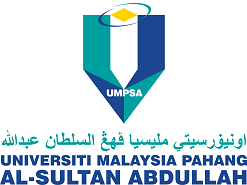Parametric Factorial Analysis of Fermentation Conditions for Protease Production from Pineapple Waste
DOI:
https://doi.org/10.15282/jceib.v10i1.10431Keywords:
pineapple waste, probiotic, fermentation, protease, factorial designAbstract
Pineapple waste is abundant in cellulose, hemicellulose, lignin, complex carbohydrates, and protein. One simple way to use pineapple waste as a substrate is to utilize it with the probiotic beverage to produce enzymes through submerged fermentation. Studies on fermentation using pineapple waste have mainly focused on cellulose, xylanase, and pectinase, with little information on protease fermentation. Future studies on pineapple waste-based protease fermentation should be conducted. The present work aims to investigate the significant process parameters affecting protease fermentation from pineapple waste. The parametric screening was performed using the two-level fractional factorial design by Design Expert 7.1.6. In this work, four process parameters were manipulated for protease fermentation which is incubation time from 24 hours to 72 hours, temperature from 20.0 °C to 40.0 °C, substrate concentration from 10.0 % to 30.0 % and pH value from 4.0 to 8.0. The result showed that the most significant process parameters affecting protease fermentation were temperature, pH value and incubation time. This study investigated that the highest protease activity, 0.118 U/mL can be obtained with 48 hours of incubation time, 30.0 °C of temperature, 20.0 % of substrate concentration and pH 6.0.
Downloads
Published
Issue
Section
License
Copyright (c) 2024 The Author(s)

This work is licensed under a Creative Commons Attribution-NonCommercial 4.0 International License.



